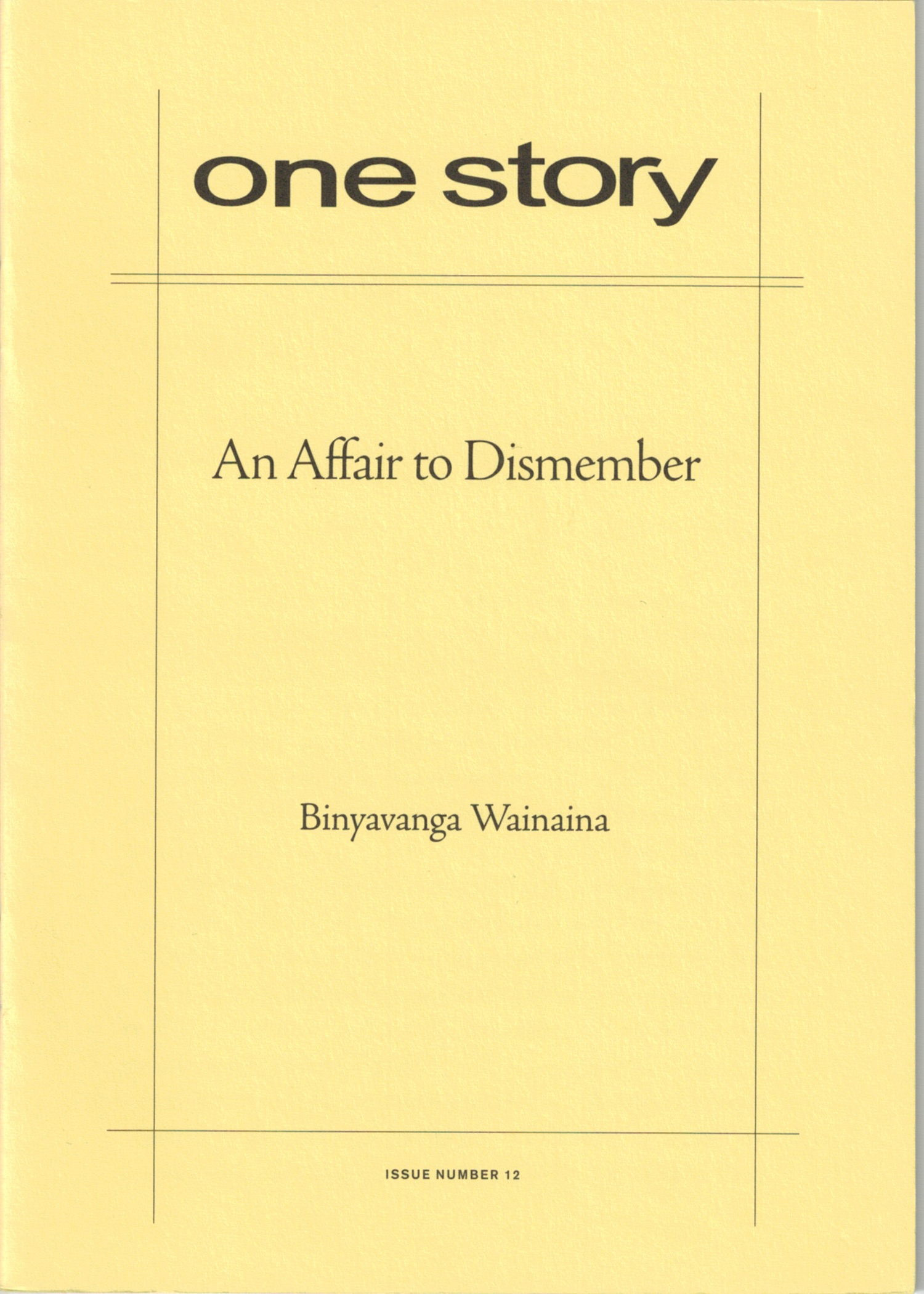
An Affair to Dismember
$2.50
Sold out
Excerpt
There is this game I play, a game Mrs. Green my former adopted mother taught me. She would fold a piece of paper, while I watched her hands, watched the piano tendons ripple, the strange blue veins. Then she would ask me to draw what pattern the paper folded into. I never failed to get it right. Last night, dizzy with head-fuck after reading Soyinka’s play, The Road, I lay in bed and closed my eyes, and conjured an enormous piece of paper. I folded it this-way and that, folded it in ways I have never attempted. Then I sprayed it with something to make it brittle.
Binyavanga Wainaina
Binyavanga Wainaina is a Kenyan writer. He lived and worked for ten years in South Africa. He has been writing from Nakuru Kenya for the past two years. He has been published by various literary journals around the world. He writes regularly for The Sunday Times (South Africa) and The East African (Kenya).
In July 2002 he won the Caine Prize for African Writing – Africa’s most prestigious literary prize. The Caine Prize for African Writing is named in memory of the late Sir Michael Caine, who was Chairman of the Booker Prize management committee for almost 25 years. The patrons of the prize are three African winners of the Nobel Prize for Literature: Wole Soyinka, Nadine Gordimer and Naguib Mahfouz.
Q&A by Hannah Tinti
- HT: Where did the idea for this story come from?
- BW: Hmm...can’t remember really. Oh yes. somebody I knew once who was a genius, but who had sort of abandoned life in the formal economy and sold beer. I was fascinated with the idea that one can reject one’s mind. Also, something that bothers me at times is our intellectual culture: so many brilliant people in Kenya refuse to use their minds to create things—one’s education is often so tied to class and self-esteem, people do not like to take risks by trying to create; they prefer to regurgitate the obvious. Creating means risking failure.
- HT: What was the most challenging aspect of writing this story?
- BW: Getting Geoff right was hard—I spent a year chopping and changing him. He just didn’t seem to ring true until he becomes a jazz guy.
- HT: Is there any way that Geoff Mwangi may be able to resolve his two identities?
- BW: I don’t think so.
- HT: How has living in Kenya affected your style as a writer?
- BW: Difficult one. I guess the challenge is to write what can be read. Also, most Kenyans are not middle-class, and being middle-class in Kenya is a challenge if you are a writer, because your attitudes differ significantly from most—so I constantly research characters, dialogue and language more than I would have living in the US, or even South Africa. We Kenyans area a complex lot. Even I find us difficult to understand. Also—there isn’t that much of a body of literature on Kenya to gain inspiration from. There is so much new territory, so many things never written about: that excites me.
- HT: How long did it take you to complete this story?
- BW: About six months, on and off. The main bits were done in a few days, the rest was tweaking mostly.
- HT: What is the best bit of advice about writing you have ever received?
- BW: Just do it. Worry about its quality after finishing it.
- HT: What are you working on now?
- BW: I am a messy writer. There are two novels I am working on, and a non-fiction book version of my story “Discovering Home”—and four or five short stories that I continue to chop and change.